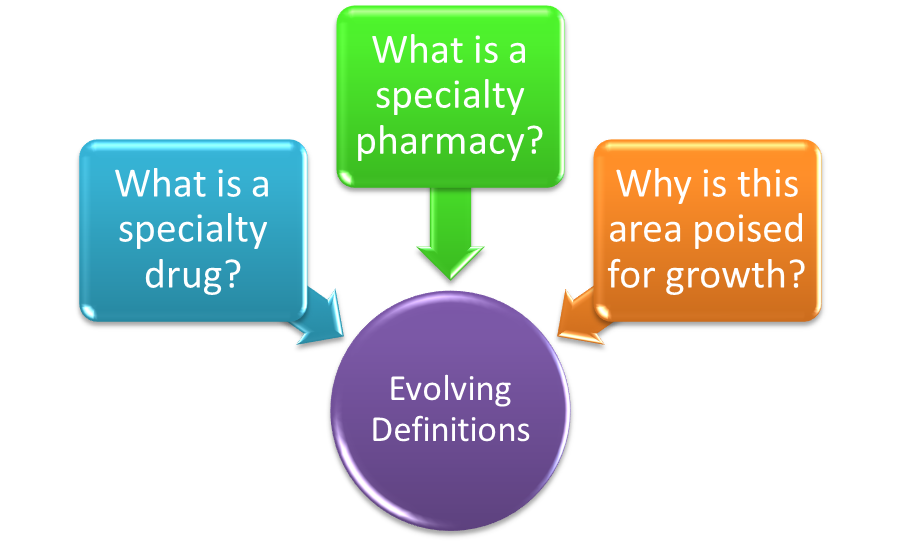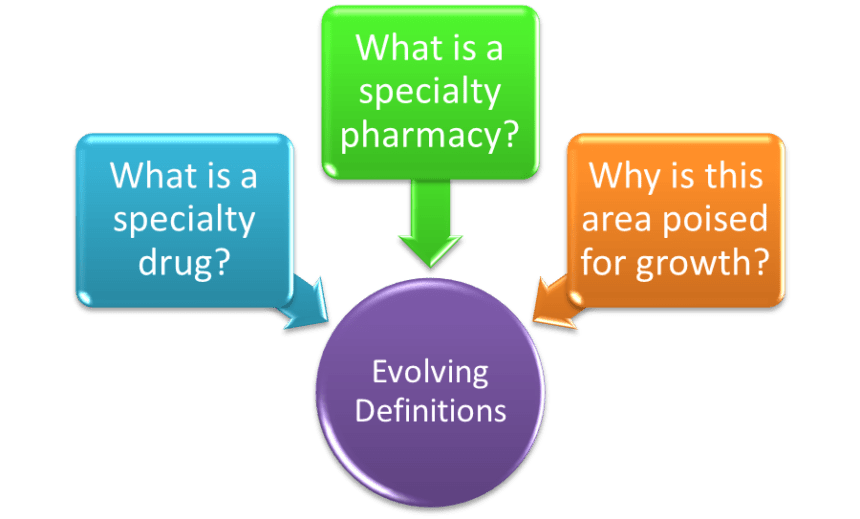 For many patients with complex, chronic illnesses, specialty pharmacies are the crux of their treatment. It is through these pharmacies that they can obtain their prescriptions, many of which are uncommonly seen in regular pharmacies and/or require very specific protocols for filling.
For many patients with complex, chronic illnesses, specialty pharmacies are the crux of their treatment. It is through these pharmacies that they can obtain their prescriptions, many of which are uncommonly seen in regular pharmacies and/or require very specific protocols for filling.
 For many patients with complex, chronic illnesses, specialty pharmacies are the crux of their treatment. It is through these pharmacies that they can obtain their prescriptions, many of which are uncommonly seen in regular pharmacies and/or require very specific protocols for filling.
For many patients with complex, chronic illnesses, specialty pharmacies are the crux of their treatment. It is through these pharmacies that they can obtain their prescriptions, many of which are uncommonly seen in regular pharmacies and/or require very specific protocols for filling.
Patients with multiple sclerosis, rheumatoid arthritis, cancer, hemophilia and other complex chronic disorders rely on specialty pharmacies to prepare and disperse their treatments. Of course, when patients are dealing with such intense medical regimens, and physicians are prescribing them, being able to rely on a pharmacy to provide these treatments accurately and timely is of the essence. Specialty pharmacies who achieve the highest level of URAC accreditation showcase to physicians and patients alike that they are devoted to the highest level of quality when it comes to being part of their care teams.
How do you go about getting this Specialty Pharmacy Accreditation?
According to URAC, a Specialty Pharmacy is any pharmacy located in the United States that dispenses prescription medication to consumers with chronic conditions, acute events, or fertility drugs and provides education and coordination with the prescriber. This may be a retail, chain, or fulfillment pharmacy.
Payers have the ability to limit the number of specialty pharmacies in their covered network, however, so even though your pharmacy may have the coveted accreditation, for some patients it may not make a difference when it comes to coughing up the copay. Still, it’s worth having such an accreditation so that the pharmacy has the option to disperse the kind of specialized medications and treatments that their patients need – this gives them a kind of competitive edge over pharmacies that don’t give patients access.
In addition to limitations set forth by third-party payers, there are limitations set by manufacturers on the number of specialty pharmacies that are authorized to distribute their product. This allows them to maintain quality control.
Through accreditation, a pharmacy can exemplify to these third-party payers and manufacturers that they have the resources and dedication to abide by their preset standards. Most contract agreements now require URAC Specialty Pharmacy Accreditation as part of their relationship with pharmacies, so getting accredited opens up the doors for a pharmacy to more business relationships.
5 Steps to Achieving URAC Specialty Pharmacy Accreditation
1. A pharmacy’s relationship begins with URAC when the business enters an agreement and pays the necessary fees for accreditation.
2. At this point, the business submits documentation of their current state of adherence to standards. They may be ready for accreditation, or, they may need to make a few adjustments first.
3. In the third step, the accrediting body responds by evaluating how well the business is currently meeting the standards and what they need to do to improve. They may also request more information on which to base their decision, and this information needs to be sent within a predetermined time frame in order to qualify.
4. The accrediting body is now ready to do an onsite evaluation. During this time, they will assess the business’s adherence to current policy and procedures.
5. Finally, the accreditation decision is made. If the business becomes accredited, they will require periodic reviews by the accrediting body to maintain. If they are not ready to become accredited, they can make the necessary changes and submit again.
You might be wondering how the fees for the accreditation services are determined. In most cases, you work with the accrediting body to determine a fee that is contingent upon the number of specialty pharmacies in your network. In some cases, if the pharmacy is fairly new, they may be offered provisional accreditation so they have a little more time to get some solid ground under them before becoming fully accredited.
Knowing all you can about the process will help you succeed in becoming accredited. The first step, of course, is simply to decide if accreditation is right for you!






